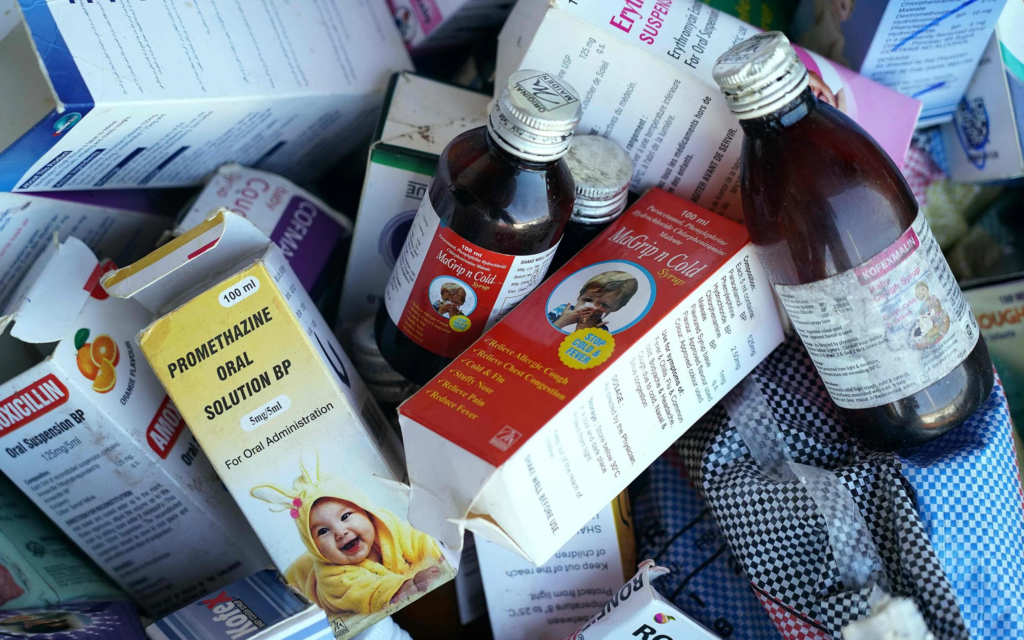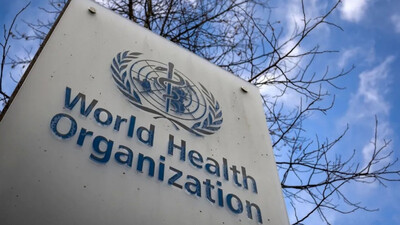The World Health Organization (WHO) has issued a warning about the ongoing global threat posed by toxic cough syrups. Last year, more than 300 infant deaths across three continents were linked to tainted children’s medicines. The WHO has now expanded its efforts to collaborate with six additional countries in tracking these potentially deadly medicines. Investigations are still underway, and the organization has refrained from disclosing the names of the countries involved.
The Persistence of Contaminated Medicines
Rutendo Kuwana, the WHO team lead for incidents with substandard and falsified medicines, cautions that contaminated medicines may continue to be found for several years. The presence of adulterated barrels of an essential ingredient, propylene glycol, in warehouses could contribute to this ongoing risk. Both cough syrups and propylene glycol have approximate shelf-lives of two years, further exacerbating the persistence of the issue.

Unscrupulous Actors and Toxic Alternatives
Pharmaceutical manufacturing experts have highlighted that unethical actors often substitute propylene glycol with toxic alternatives such as ethylene glycol and diethylene glycol due to their lower costs. These alternatives, commonly used in brake fluid and other non-consumable products, pose a significant risk to human health when used in medicines. The WHO’s working theory suggests that when prices of propylene glycol surged in 2021, suppliers mixed the cheaper toxic alternatives with the legitimate chemical. However, due to complex supply chains, it has been challenging to pinpoint the exact location of these suppliers.

Affected Countries and Safety Alerts
The WHO has identified nine countries where tainted syrups may have been sold, including Gambia, Uzbekistan, Micronesia, the Marshall Islands, and Indonesia. In Liberia, although no deaths have been reported, the Nigerian regulator issued a warning about contaminated paracetamol syrups. The WHO has also provided safety alerts for Indian-made products in these countries. Indonesian-made syrups, which caused over 200 cases of suspected poisoning, led to the revocation of licenses for several manufacturers.
Response and Actions Taken
The WHO has collaborated with Timor Leste, Cambodia, Senegal, and the Philippines to track the distribution of contaminated syrups in their markets. Fortunately, there is no current risk to the population in the countries named by the WHO, as either the contaminated medicines have been removed from shelves or never reached the market in the first place. However, investigations and precautionary measures remain crucial.
Challenges and Manufacturer Accountability
Indian-based manufacturers have been implicated in the majority of cases associated with the current spate of incidents. Authorities have closed down companies like Maiden Pharmaceuticals and Marion Biotech, whose products were linked to deaths in Gambia and Uzbekistan, respectively. The Cameroon authorities are investigating the deaths of six children linked to a cough syrup from China’s Fraken Group. They suspect the medicine was obtained from unauthorized sources. Indian manufacturer QP Pharmachem faced a recall of its products in the Marshall Islands and Micronesia following contamination reports.
The WHO’s Recommendations and Support
The WHO has emphasized its long-standing recommendation against administering cough syrups to children under the age of 5 due to limited evidence of effectiveness and potential side effects. Over the past half-century, there have been multiple incidents of paracetamol and cough medicines being contaminated with deadly chemicals in various countries. The WHO has called on all nations to enhance surveillance and has offered support to countries lacking the resources to conduct their own medicine testing.

Read more: Night Owls at Risk: Drinking and Smoking Linked to Early Death, Study Shows
The global risk posed by toxic cough syrups remains an ongoing concern, as the WHO continues to work with additional countries to track these dangerous medicines. While contaminated medicines may persist for several years, the organization is urging countries to take proactive measures and enhance surveillance. The recent incidents highlight the importance of strict regulations, supply chain transparency, and robust quality control in the pharmaceutical industry to ensure the safety of medicines and protect public health.



